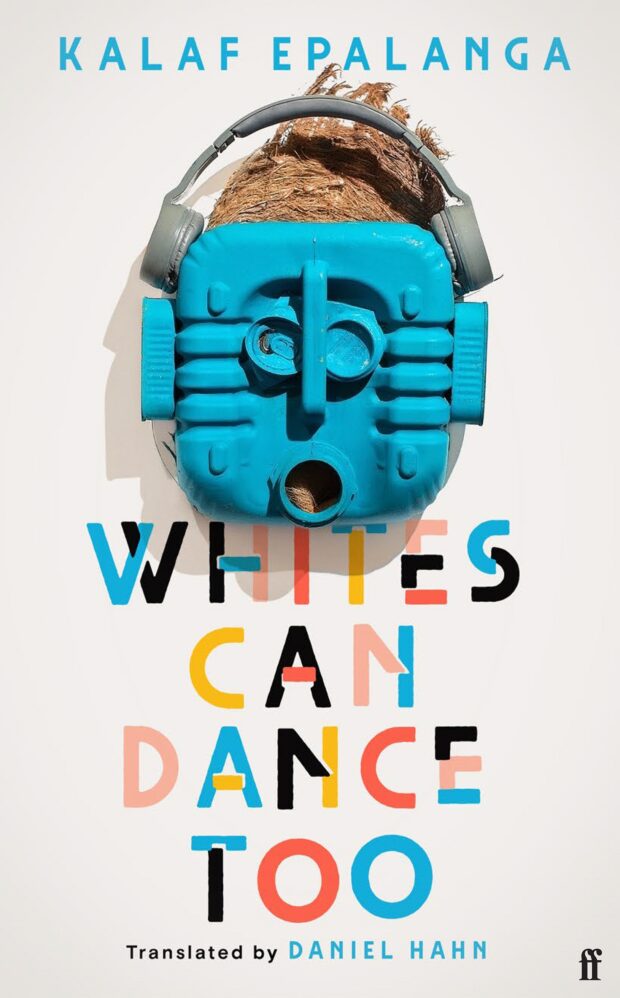You have no items in your cart. Want to get some nice things?
Go shopping
ZL: Can you tell us about the process of writing Whites Can Dance Too and the three different voices that form the core of the narrative?
Crafting Whites Can Dance Too was an immersive and intricate process. It involved weaving together three distinct voices to construct a narrative that echoes the richness and diversity of human experiences. Each of these voices is uniquely shaped by their personal journey, underscored by the wonderful beats of kuduro, kizomba, and hip-hop. The novel’s process and narrative unfolded in parallel, both seeking to explore how music and dance can bridge gaps, erode boundaries, and catalyze a profound cultural awakening.
ZL: Whites Can Dance Too is at its heart a story of migrants and navigating the borders of the world. In today’s times, how do you think this novel interacts with questions of freedom, identity & the pursuit of a future that is more cross-cultural?
Today, in a world grappling with questions of identity, freedom, and the drive for a more cross-cultural future, I believe stories like Whites Can Dance Too play a critical role, especially in the context of current events, such as the stance of British Prime Minister Rishi Sunak on immigration and illegal aliens. It underscores the urgent need for nuanced conversations and perspectives. This novel crosses not just through physical borders but also through the fluidity of music and shared cultural experiences. It aims to celebrate the richness of Luso-African culture and to challenge readers to reassess their biases and perceptions. It is a call for a more inclusive, understanding world that values the diverse tapestry of human experience.

ZL: What was it like working with Daniel Hahn to translate it into English?
Working with Daniel Hahn was a true collaboration. His respect for the text and his dedication to maintaining the soul of the story in its translation into English was impressive. The exchange of ideas and the shared passion for this story truly enriched the novel.
ZL: This is your debut novel. Do you have any tips for writing a novel, and getting it out there?
For aspiring novelists, my advice would be to write about what truly moves you. In my case, it was music, culture, and the experiences of navigating between different worlds. Stay true to your unique voice, even when you’re uncertain, because that’s what will make your story resonate with others. Once you’ve written something you believe in, find allies in the industry who share your vision.
ZL: You’ve previously said that you like to bend and fuse genres with literature, as with music. Can you tell us more about this fusion, and how you applied it to Whites Can Dance Too?
The blending of genres in my book reflects the cross-cultural dialogue it seeks to promote. It’s a melange of personal anecdotes, reflections, and history, just as kuduro, kizomba, and hip-hop are a fusion of various musical elements. This stylistic blend seeks to encapsulate the diverse voices and experiences that make up our world.
ZL: As a musician, columnist and writer, you’ve been in a lot of creative industries. What are some of the challenges you’ve faced within these industries?
Creativity comes with its own set of challenges. One is to maintain authenticity in a world that often seeks conformity. Another is to find the right channels to bring your vision to an audience without losing its essence. These hurdles are significant, but overcoming them brings immense satisfaction.
About Zadie Loft
Zadie read Classics at Downing College, Cambridge, and is currently studying for an MSt in Creative Writing at Kellogg College, Oxford. She has previously been a columnist for the Cambridge Varsity newspaper and a prose and verse contributor for La Piccioletta Barca. She is Litro's Editorial Strategist.




